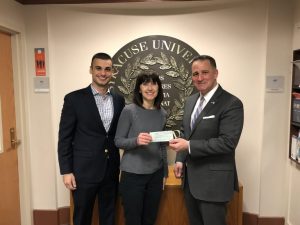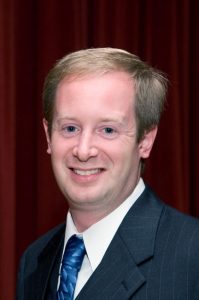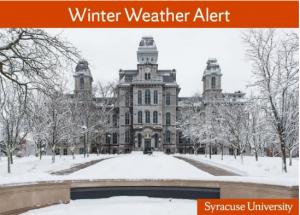As an English teacher in Vietnam, Mai Nguyen knows firsthand the crisis in the education system in her country. Her mission now is to call attention to the issue by bringing awareness to the relationships between teachers, parents and students in order to affect change.
Nguyen, who is a Fulbright Scholar, spent four weeks this summer in the English Language Institute (ELI) graduate studies program administered by University College. When the program required a research project, Nguyen knew exactly what she would explore—“Creating a Happy Educational Environment in Vietnam.” In her presentation, Nguyen talked about the disintegration of the education system due to miscommunication, violence and immense public pressure. Mental health issues, achievement syndrome and suicide among students are just a few of the topics Nguyen highlighted. Her poster project was presented to fellow students, instructors and administrators across campus.
Nguyen is now a graduate student in the School of Education majoring in teaching and curriculum. While her poster project is now hanging in her room, her research has been made available to a global audience through a partnership between the ELI and the Syracuse University Libraries.
SURFACE is an electronic database maintained and run by the Libraries. Its purpose is to utilize open access, a free repository of research articles available to readers across the globe. The database is available to faculty, students, alumni and authors who are, or were, affiliated with the University. “Other databases that are licensed through collections are not available to those who are no longer or have never been affiliated with Syracuse University,” says Amanda Page, open publishing and copyright librarian. She and her colleagues Tarida Anantachai and Deirdre Joyce spent months collaborating with the ELI staff and instructors to develop this pilot project. Graduate students Prathamesh Datar and Euphemia Brewer Fasama also assisted in the development.
“It’s a great resume builder and because the students’ works were published as open access, they will retain all copyright of their posters and research,” says Page. “This project helps the students when they go on to another college or university. It gives them a head start—they’ve done the research, cited their sources correctly and had it published.”
“For international graduate students like Mai Nguyen and her fellow Fulbrighters, providing this opportunity to publish their ideas on a platform like SURFACE is extremely motivating,” adds ELI Director David Lind. “By making these ideas accessible and free to anyone, anywhere in the world, Syracuse University Libraries is doing a great service to international education.”
Nguyen’s first graduate course this semester was Understanding Educational Research. Through her poster project in the ELI, she was able to share what she learned with the hope that one day, she’ll return to Vietnam and contribute something to the educational system. “This project reminds me why I’m here,” she says. “This is a global topic. For many in education, there needs to be mindfulness in teaching, learning and communicating.” Nguyen says that mindfulness is just one of the solutions to a better system of education. “If the people in Vietnam, especially the parents, know about a situation they will have greater awareness of some of the issues students face.”
“Collaborating with the ELI and all of the contributors on this pilot project has been a joy,” says Anantachai, who is an outreach librarian. “It’s been really exciting to come together and expand the scholarly opportunities of this program, and especially to support the inspiring research and contributions of the Fulbright Scholars in the process.”
SURFACE, Syracuse University’s repository for local and global readers, was launched in 2010. Syracuse University Libraries’ Open Publishing Team is committed to providing all students, faculty and staff access to the resources and services needed to publish their research.
The ELI, established in 1979, provides a pathway to achieving English language proficiency. It delivers English courses for many purposes, including academic, business, general and law, and can customize courses for cohorts of students from across the globe.


 Ryan O. Williams, Ph.D., has joined University College as associate dean of academic affairs. Williams will serve as chief academic officer providing leadership for and coordination of the college’s academic mission. He will be responsible for researching, developing and launching new market-sensitive undergraduate and graduate programs. He also has been appointed as an associate teaching professor in political science at the Maxwell School. Williams has worked at Syracuse University since 2002.
Ryan O. Williams, Ph.D., has joined University College as associate dean of academic affairs. Williams will serve as chief academic officer providing leadership for and coordination of the college’s academic mission. He will be responsible for researching, developing and launching new market-sensitive undergraduate and graduate programs. He also has been appointed as an associate teaching professor in political science at the Maxwell School. Williams has worked at Syracuse University since 2002. Central New York is under a Winter Storm Warning, with forecast of icy conditions and significant snow accumulation today (Sunday, Dec. 1) and into tomorrow (Monday, Dec. 2). Syracuse University officials have determined to cancel on-site classes on Monday, Dec. 2. All online classes are scheduled as planned, including live sessions.
Central New York is under a Winter Storm Warning, with forecast of icy conditions and significant snow accumulation today (Sunday, Dec. 1) and into tomorrow (Monday, Dec. 2). Syracuse University officials have determined to cancel on-site classes on Monday, Dec. 2. All online classes are scheduled as planned, including live sessions.